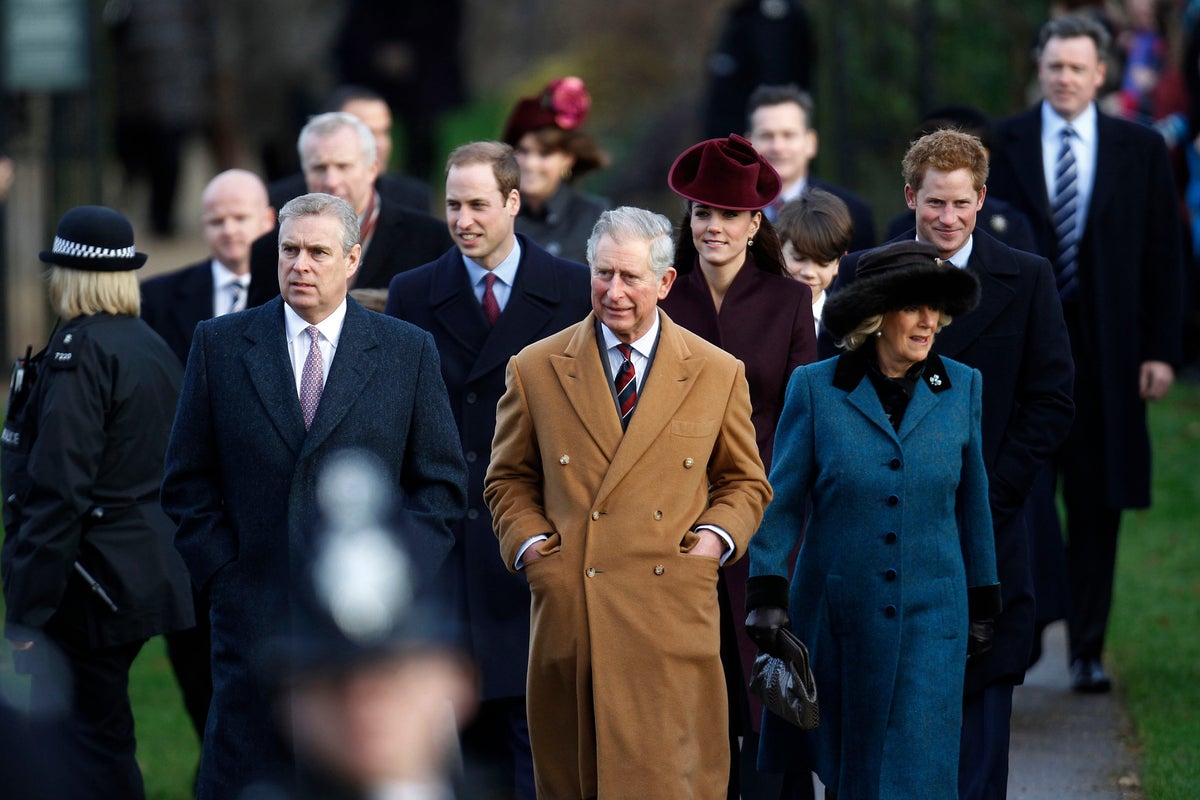Politics
Prince Andrew Stripped of Titles Amid Allegations of Abuse

Prince Andrew has been officially stripped of his royal titles, meaning he will no longer be addressed as “prince” or “His Royal Highness.” Buckingham Palace announced the decision, stating: “His Majesty has today initiated a formal process to remove the style, titles and honours of Prince Andrew.” Following this change, Andrew will be referred to as Andrew Mountbatten Windsor. The statement emphasized that these actions are necessary, even as Andrew continues to deny the allegations against him.
The palace expressed its support for victims of abuse, declaring that “Their Majesties wish to make clear that their thoughts and utmost sympathies have been, and will remain with, the victims and survivors of any and all forms of abuse.” As part of the fallout from these allegations, Andrew will vacate his residence at Royal Lodge and relocate to alternative private accommodation.
This decision is rooted in serious allegations linked to Andrew’s association with convicted sex offender Jeffrey Epstein, which he has consistently denied. The question arises: how can a prince, being the son of a queen, lose the title of “prince”? The mechanism for this action lies within the authority of the monarch, specifically King Charles III.
Understanding the Title Removal Process
The monarch can issue an official document known as a letters patent. Typically, these documents grant titles or rights, but in this case, they are used to revoke Andrew’s titles. Historically, there are precedents for such actions. For instance, when Diana, Princess of Wales, divorced Prince Charles, she lost the title of “Her Royal Highness.” Similarly, Sarah Ferguson, the former wife of Andrew, also lost her royal title following their divorce. Thus, while the removal of royal titles can be controversial, it is not without precedent.
However, the removal of Andrew’s title does not automatically alter his position in the line of succession, where he currently stands as eighth in line to the throne. Changing this status would necessitate parliamentary action, not just from Westminster but also from Commonwealth parliaments, including those in Australia, New Zealand, and Canada.
The process would require the introduction and passage of a bill through the Westminster Parliament, as well as similar legislation in all Commonwealth jurisdictions. Although this may seem complex, it is not without historical precedent. In 2011, the Perth Agreement allowed Commonwealth parliaments to coordinate changes to succession laws, ensuring that older princesses would not be supplanted by younger male siblings.
Potential Implications for Succession
While no current discussions have emerged in media reports regarding the removal of Andrew from the line of succession, the possibility exists. There is a growing sentiment that it is incompatible for Andrew to lose his titles while remaining in line for the throne. Customarily, the son of a queen is designated as a prince; however, royal titles can be revoked, as evidenced by historical precedents.
A notable example of title removal occurred in 1936 when King Edward VIII abdicated his throne to marry divorcee Wallis Simpson. Following his abdication, he lost the title of king and was thereafter known as the Duke of Windsor, marking a significant shift in his status. Although Edward VIII did not have children, it is clear that such title changes can affect succession rights.
Reports indicate that Andrew has accepted the king’s decision, which serves as a clear message from Charles III to the public and his heir, Prince William. This decisive action reflects an effort to mitigate public discontent surrounding the allegations against Andrew and to pave the way for William’s eventual succession.
Historically, the British monarchy has faced crises requiring decisive actions to preserve its reputation. Just as King George V acted during World War I to strip titles from family members who supported Germany, the current monarchy is taking steps to safeguard public support.
As this situation continues to unfold, it will be essential to observe how these developments may impact the future of the British royal family and the broader implications for the monarchy itself.
-

 Health3 months ago
Health3 months agoNeurologist Warns Excessive Use of Supplements Can Harm Brain
-

 Health3 months ago
Health3 months agoFiona Phillips’ Husband Shares Heartfelt Update on Her Alzheimer’s Journey
-

 Science1 month ago
Science1 month agoBrian Cox Addresses Claims of Alien Probe in 3I/ATLAS Discovery
-

 Science1 month ago
Science1 month agoNASA Investigates Unusual Comet 3I/ATLAS; New Findings Emerge
-

 Science4 weeks ago
Science4 weeks agoScientists Examine 3I/ATLAS: Alien Artifact or Cosmic Oddity?
-

 Entertainment4 months ago
Entertainment4 months agoKerry Katona Discusses Future Baby Plans and Brian McFadden’s Wedding
-

 Science4 weeks ago
Science4 weeks agoNASA Investigates Speedy Object 3I/ATLAS, Sparking Speculation
-

 Entertainment4 months ago
Entertainment4 months agoEmmerdale Faces Tension as Dylan and April’s Lives Hang in the Balance
-

 World3 months ago
World3 months agoCole Palmer’s Cryptic Message to Kobbie Mainoo Following Loan Talks
-

 Science4 weeks ago
Science4 weeks agoNASA Scientists Explore Origins of 3I/ATLAS, a Fast-Moving Visitor
-

 Entertainment4 months ago
Entertainment4 months agoLove Island Star Toni Laite’s Mother Expresses Disappointment Over Coupling Decision
-

 Entertainment3 months ago
Entertainment3 months agoMajor Cast Changes at Coronation Street: Exits and Returns in 2025









